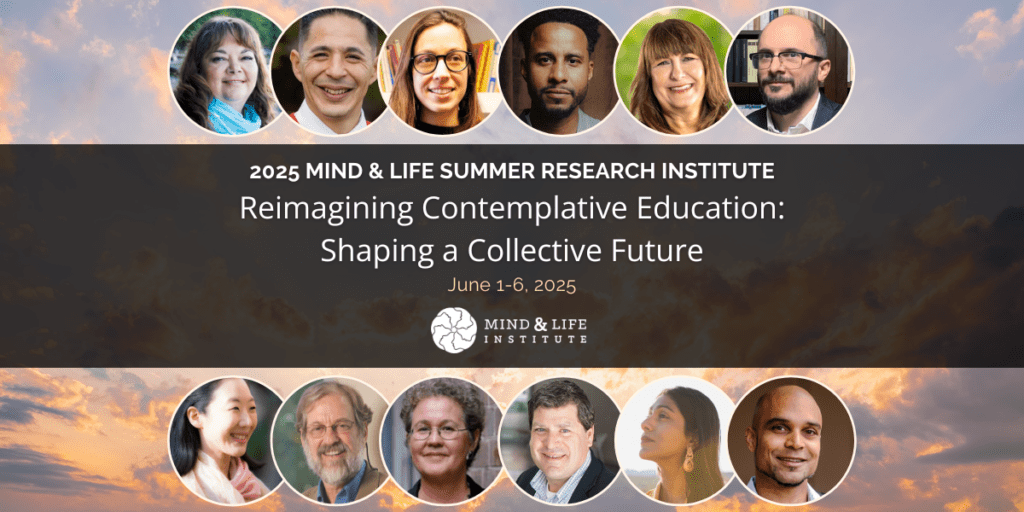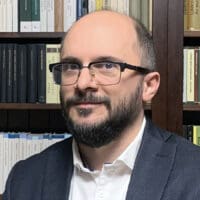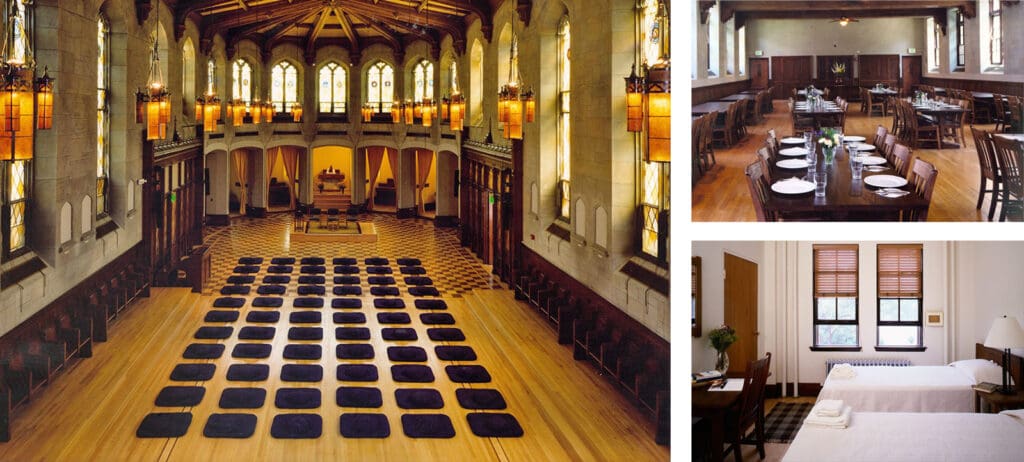Garrison Institute, New York, Sunday, June 1 — Friday, June 6, 2025

Applications are now closed
“Reimagining Contemplative Education: Shaping a Collective Future” is for researchers, educational and contemplative practitioners, and policymakers who are committed to exploring how contemplation can enrich and reimagine educational systems in the 21st century. Contemplative education integrates academic study with practices that cultivate mindfulness, self-awareness, reflection, and compassion. It is based on the idea that education should not only focus on the development of cognitive skills and knowledge acquisition but on the inner development of individuals—emotionally, ethically, and spiritually.
SRI 2025 advances the idea that the adaptation of premodern wisdom is needed in post-modern educational institutions if we are to rise to the challenges confronting us as a species and a planet. Such premodern wisdom values the cultivation of attentional skills (mindful awareness), social-emotional skills (e.g., empathy, perspective taking, kindness, altruism), systems-thinking skills (e.g., seeing interdependence, our common humanity), and ethics (e.g., fairness, compassion) through targeted practices (e.g., focused attention) and purposeful activities (e.g., service with reflection).
The event will bring together professionals engaged in education in various forms, including within public schools, monasteries, and universities, who are committed to exploring how contemplation can help to enrich and reimagine educational systems in the 21st century. Content will be of particular interest to those working in primary, secondary, and tertiary education systems with educators, students, caregivers, or families. Our faculty features world-renowned contemplative teachers and speakers on educational reform and contemplation, social and emotional learning, contemplative studies in universities, and contemplative education projects involving whole cities.
A developmental theme extends through the six-day program:
- We will explore how educational systems in childhood, adolescence, and early adulthood can be re-imagined around pedagogies that cultivate attentional, social-emotional, systems-thinking, and ethical skills.
- We will look at how the application of such skills can contribute to a sense of flourishing for oneself and the world.
- We will highlight educational research and practice across the first three decades of life.
Questions we may explore:
- How can insights from the sciences of the mind and wisdom traditions enhance the field of education?
- How can we create education systems that model excellence, equity, and engagement that shape individuals from early childhood through college, who are successful, happy, and ready to confront the challenges of a changing world?
Mind & Life’s 2025 Summer Research Institute (SRI) will address these issues through the lens of contemplation.
Ultimately, we seek to envision what a lifelong approach to education—blending scientific and humanistic education, artistic imagination, contemplative insight, and community service—could look like. The notion that positive social change could be affected through such a worldwide educational movement—in ways that address the economic, sociopolitical, and ecological challenges of our age—is the subject of ongoing discussion among nations and governments globally. What are our individual and collective roles in nurturing this movement? Join us at SRI 2025 to learn more and to contribute to the conversation and reimagining!
Faculty Spotlight

Gábor Karsai
Mind & Life Europe, Dharma Gate Buddhist College
Convening Faculty
Gábor Karsai, based near Budapest, Hungary, is a long-standing member of the MLE Association, and presently serves as Rector of the Dharma Gate Buddhist College in Budapest, as well as … MORE

Valerie Brown
Lead Smart Coaching
Convening Faculty
Valerie Brown is an acclaimed international facilitator, leadership coach, speaker, and award-winning author dedicated to fostering personal and societal transformation. As the founder of Lead Smart Coaching, LLC, Valerie integrates … MORE

Patricia (Tish) Jennings, MEd, PhD
University of Virginia
Convening Faculty, Fellow, Grantee, Reviewer
Prof. Jennings is a Professor of Education at the Curry School of Education at the University of Virginia. She is an internationally recognized leader in the fields of social and … MORE

Owsley Brown III
Owsley Brown Presents
Board Member, Fellow
Owsley Brown is devoted to sustaining healthy communities by enhancing cultural, spiritual, and civic life. He is a documentary filmmaker, a director of foundations and nonprofit boards, a student of … MORE
Who Should Attend?
Anyone whose work and/or personal passions align with this year’s theme, “Reimagining Contemplative Education: Shaping a Collective Future” is welcome, including researchers (e.g., scientists, humanities scholars), educators, practitioners, contemplatives, and changemakers (e.g., leaders, policymakers, clinicians, activists).
The Mind & Life Institute is committed to: 1) building a thoughtful and engaged interdisciplinary community that integrates diverse perspectives and experiences, and 2) offering catalytic and transformative opportunities, especially for those early in their careers.
This unique, international gathering offers the opportunity to deepen work and connections, and the potential to spark innovative and interdisciplinary collaborations and projects.
Applicants must apply to one of two categories of participants:
Emerging: Students (undergraduate and graduate), postdoctoral fellows, junior faculty (researchers across the sciences and humanities), early-career changemakers and professionals, and contemplative practitioners within five years of appointment or beginning work in the field.
Please note: Emerging researchers who attend the SRI become eligible to apply for the Mind & Life Francisco J. Varela Research Grants.
Established: Researchers (across the sciences and humanities), contemplative teachers, and changemakers (professionals, policymakers, leaders, activists), and those interested in this topic, who have held faculty appointments or positions for more than five years.
We welcome candidates of all races, ethnicities, classes, genders, ages, religions and spiritualities, physical abilities, sexual orientations, geographic locations, disciplines, and institutions to apply.
Information on how to apply will be made available when applications open on Monday, December 2, 2024.
Registration Fees
The registration fee is paid by successful applicants at the time of registration. The fee covers all program fees, room (shared), and board (three vegetarian meals per day). Each participant is expected to cover his/her/their own travel expenses. The registration fee will also provide participants access to video recordings of all plenary and panel sessions from the event for 6 months after the event.
$585 for Emerging Participants
$815 for Established Participants
Scholarships
In our continued efforts towards equity, diversity, and inclusion, Mind & Life has committed to increase the participation of individuals from culturally diverse and historically underrepresented backgrounds, and those with financial need. We are aware that our gathering is immeasurably enriched through a multitude of perspectives and experiences. With the support of generous donors, scholarship funding is available to people who might otherwise be unable to attend the SRI. Scholarship awards will be made available to help with registration and travel costs. Applicants may apply to be considered for one or both.
In addition, scholarship funding is also available for individuals who are full-time monastics or members of the clergy (ordained or in full-time training). Individuals who wish to be considered for a monastic scholarship should indicate so as part of their scholarship application as well as submit a brief 150-word description of their monastic/clerical background.
Scholarship applications are submitted as part of the general application form (opening on December 2, 2024). In order to be considered for a scholarship, applicants must submit an additional 150-300 word personal statement that describes their need and how a scholarship to the SRI will enable their work and help them to achieve their research/professional goals.
Scholarship recipients will be notified of their awards, including funding amounts, along with the general application decision letters that will be sent in mid-March.
Venue
The 2025 Summer Research Institute will be held at the beautiful and serene Garrison Institute in Garrison, New York (located 50 miles north of New York City in the Hudson River Valley). This 1923 four story building, which was originally a Capuchin monastery and seminary, was renovated in 2003 with the opening of the Garrison Institute. In addition to your lodging, Garrison provides three meals daily served in the dining hall. Garrison’s “famous kitchen” serves vegetarian meals, prepared with most of the ingredients from farms and producers in the Hudson Valley. If attendees would like to bring personal food items to supplement the vegetarian offerings, there is access to refrigerated and dry storage in the central kitchen for any personal food items. In the kitchen and beyond, Garrison Institute maintains a commitment to sustainability.
As an historic property, accommodations at Garrison are modest (twin/single beds) with no air-conditioning. Attendees should expect shared rooming (up to two individuals per room). Note that each floor has communal bathrooms that include individual private shower stalls. Separate bathrooms will be designated as binary (women, men) and nonbinary/gender neutral (all welcome who are comfortable). Mind & Life supports an inclusive environment and encourages attendees to choose bathrooms that are comfortable for them based on how they identify. We encourage guests to view the photos and information on the Garrison website.

Attendees with mobility concerns should be aware that the four story Garrison Institute building does not have elevator access to higher or lower levels. If needed, all sessions will be held on the main level. Please contact Mind & Life if you are unable to reach the lower level by stairs or if you require first floor accommodation as there are only two sleeping rooms on the first floor which are ADA compliant.
If you have questions or concerns regarding your stay at the Garrison Institute, we welcome you to reach out to programs@mindandlife.org at any point during the application and registration process.
For more information about the Garrison Institute, including photos and travel tips, please visit their website.
If you have any questions, please email programs@mindandlife.org.

